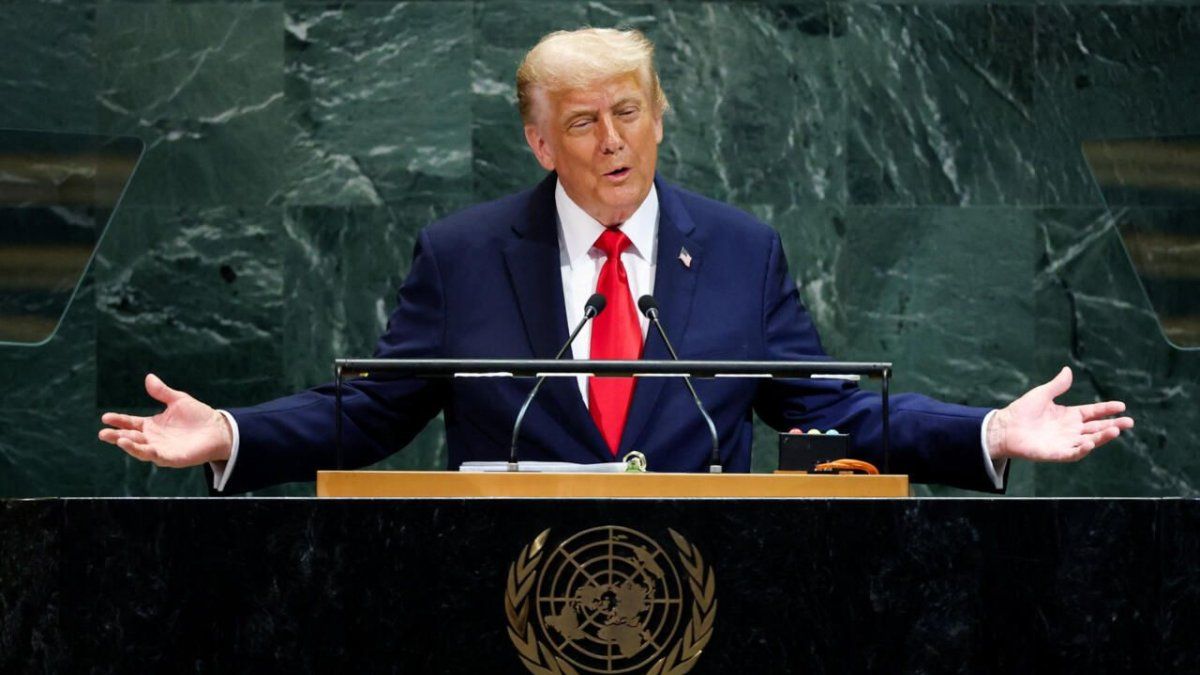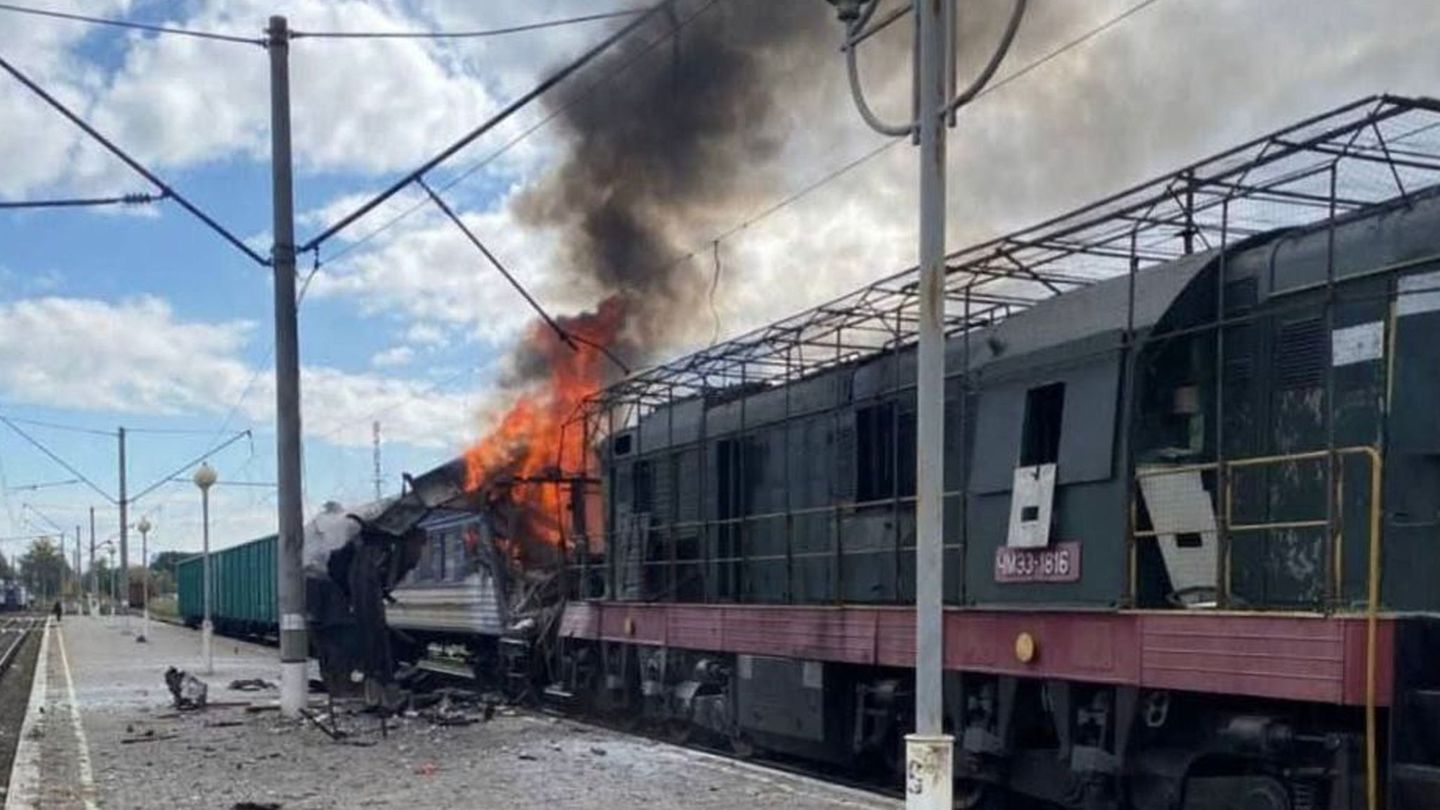The Knesset has voted for judicial reform in Israel – despite the ongoing mass protests in the country. How dangerous is Prime Minister Netanyahu’s project for democracy? The majority of the international media agree on the issue.
After the passage of a core element of the controversial judicial reform, tens of thousands of people demonstrated again in Israel. A car crashed into a crowd during a protest in a town north of Tel Aviv on Monday evening, injuring three demonstrators. The police later arrested the driver, whose motive was initially unclear in the evening. The demonstrators had blocked a lane.
People were disrupting traffic all over the country. In Tel Aviv, thousands marched for hours on a central highway in the evening. The police only managed to evict the people on Tuesday night. According to media reports, at least 34 protesters were arrested across the country on Monday, some violently. Israeli media and eyewitnesses accused the police of excessive harshness. Dozens of people were injured, among other things, by the use of water cannons. At least 13 police officers were reportedly injured after protesters threw bottles filled with sand at them. After the vote in parliament, the protest movement announced that it would continue its protest “to the end”.
This is how the international press comments on the danger to Israel’s democracy:
Germany
Badish newspaper: “In the past few months, Benjamin Netanyahu’s government has managed to take the entire political discourse in Israel hostage. For months now, no other political topic has had a chance to be discussed because the blade that Netanyahu’s government has used on the independent judiciary outshines everything else. (…). It has been less than two years since Israel slid from one new election to the next and everyone was only hoping to finally have a government with a stable majority. Today many are longing for it. That’s enough not to have a government if it doesn’t know how to deal with its responsibility.”
Frankfurter Allgemeine Zeitung: “Prime Minister Benjamin Netanyahu, who himself has fueled hatred of a ‘politicized’ judiciary for years, has long been held hostage by his ultra-right coalition partners. And for them it’s not about a meaningful readjustment of the legal system, but about defeating the opponent, the supposedly left-wing judiciary.
Netanyahu knows his fate depends on the extremists. They could burst his coalition at any time. Then it would look bleak even for a political survivor like him. So the country still has a lot of hardships ahead of it. Because Monday’s law was only the beginning of the great ‘judicial reform’. The really far-reaching parts are yet to come.”
Mirror: “This Israeli government is the product of suppressed problems that the country has been plagued with since it was founded. That has consequences for the future. Because the fight for democracy alone will not be enough. Even if the new law is rejected and the current government fails with its plans, falls apart and is no longer re-elected, that alone will not heal the Israeli world again.”
Southgerman newspaper: “The interests of individual members of the government who had or have problems with the judiciary (such as Netanyahu, who is on trial) have been placed above the common good. This historic decision will do lasting damage to the democracy that Israelis are so proud of and will intensify an already existing division in society. Former President Reuven Rivlin rightly warned of a civil war. But, as we now know, Netanyahu is willing to accept this.”
“Adequacy Clause”
Shift to the right takes the next hurdle: Thousands demonstrate in Israel against the judicial reform
Southwest Press: “It’s a victory for the extremists. On Monday, the national-religious majority in the Israeli parliament dangerously shifted the political balance in the country, thereby damaging Israel’s democratic character for the long term. … Prime Minister Benjamin Netanyahu has handed himself over to the hardliners. In order not to be legally prosecuted himself, he is completely dependent on the existence of the extremist government the Palestinians. It will be up to the West and the US to formulate their criticism in even clearer terms.”
World: “No, Israel’s democracy has not yet been abolished. Parliament has removed a clause that the country’s highest court can use to overturn government decisions as “inappropriate”. Israel’s highest court still has other means of stopping government projects, for example if they are not in line with the country’s so-called basic laws. That is why the adequacy clause alone is not decisive for the survival of democracy in Israel. And this democracy is currently very much alive.”
Great Britain
The Guardians: “This week will decide the fate of Israel as a democratic state. The hundreds of thousands of Israelis who have fled their homes in impossible circumstances did so to protest and to ring alarm bells, but also because they felt the need, if only for a short time, to live in an orderly, functioning and benevolent atmosphere. A need not to be taken lightly. For decades it has been stolen from us. The state has become a place of violence, the vul The deception by Simcha Rothman (Knesset member for the far-right Religious Zionist Party), Justice Minister Yariv Levin, Security Minister Itamar Ben-Gvir and Benjamin Netanyahu is ultimately just the artist’s signature in the corner of the big picture.”
Slovakia
Dennik N: “A weakening of the judiciary naturally also suits Prime Minister Benjamin Netanyahu. The longest-serving head of government in the history of Israel is facing allegations of corruption and abuse of office in court. (…) For seven months the governing coalition has been jeopardizing Israeli democracy and people have been taking to the streets and protesting against it for just as long. (…) No one questions the election result, only the methods of the government, which has 64 out of 120 seats in parliament and behaves as if it owns the whole country .(…)
The next few days will be dramatic and dangerous as people on the streets are angry, frustrated, tired and exhausted from the heat and lack of sleep. (…) Netanyahu bears the greatest responsibility for what happened in Israel during the seven months of his cronies with the most stupid radicals, misogynists, racists, homophobes and the uneducated. No one can remember such a weakening of Israel internally and externally, caused by a single politician’s fear that he might end up in prison for bribery and abuse of office.”
Spain
El Mundo: “Benjamin Netanyahu yesterday decided to continue the reform planned by his ultra-Orthodox and radical nationalist government to curtail the powers of the Supreme Court, which constitutes an attack on democracy. The Supreme Court is the only effective counterweight to executive power in Israel. The project is going ahead despite the strong political, social, military and international resistance it has met since the announcement in January. (…)
In a country that lacks a constitution, senate, and federal structure that can guarantee a system of checks and balances, this move means the Netanyahu government, which is on trial for corruption, seeks de facto unlimited power. The nuclear power of Israel could thus lose the moral authority to be the only real democracy in the Middle East. With all the dangers that entails.”
USA
Wall Street Journal: “Israel’s democracy is in jeopardy, its ability to defend itself against foreign threats is dwindling, and worse is to be expected. That was the exaggerated media and political narrative on Monday, as the Jewish state passed a modest judicial reform that is unlikely to have as much impact as both sides claim. (…)
Judges have not lost their extensive powers to appoint new judges. The court can still hear almost any case, even if it is a purely political issue in which no plaintiff has been directly harmed. The court retains the power it gained in the 1990s to overturn laws (…) In other words, the judiciary is not really being reformed and democracy is not dying in Israel. (…) The Israeli judicial debate is very low on the list of urgent problems in the Middle East.”
Washington Post: “If he (Netanyahu, ed.) does not compromise, the risks are great. He is endangering Israel’s security, further fragmenting an already deeply divided society and straining Israel’s relations with the United States, which has repeatedly urged him to compromise. Much damage has already been done. Netanyahu should not add fuel to this fire, but find a way out of the crisis.”
Sources: “, , , , , , .
Source: Stern
I have been working in the news industry for over 6 years, first as a reporter and now as an editor. I have covered politics extensively, and my work has appeared in major newspapers and online news outlets around the world. In addition to my writing, I also contribute regularly to 24 Hours World.




